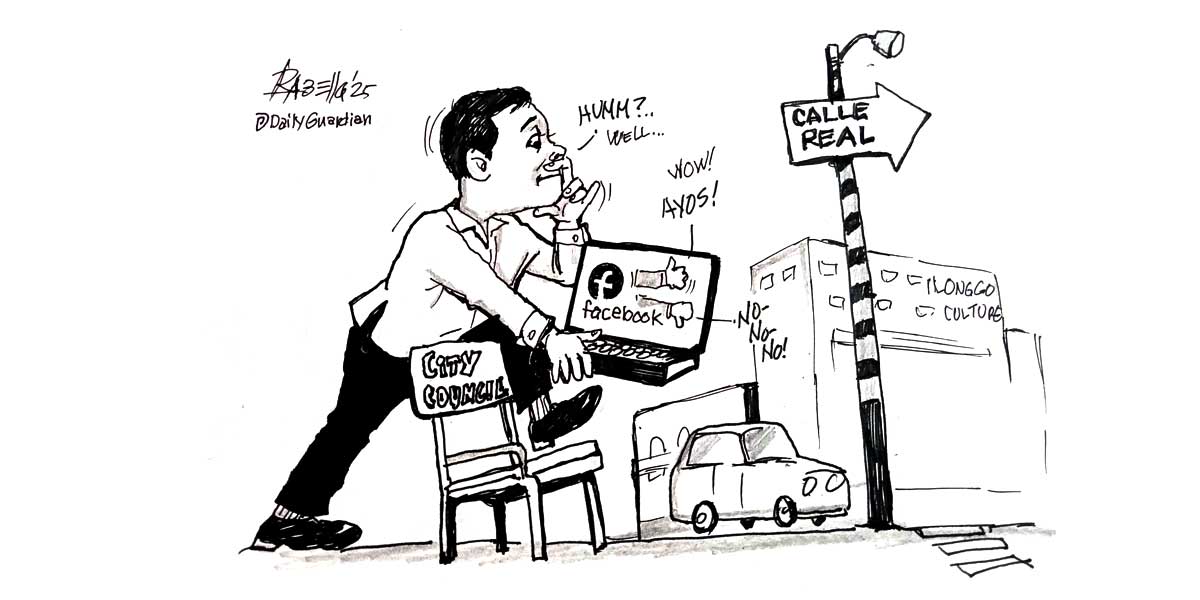By Atty. Eduardo T. Reyes III
As we enter Valentine’s month, tales of love and romance permeate the air.
Being a hopeless romantic, this columnist would like to believe in a world running on the wheels of love. It will not hurt to believe in love’s magical powers that can propel one to heights he/ she has not imagined- not even in his/ her dreams. Keeping the love aflame brings warmth and comfort that not even the February rain can dampen.
Yet the world outside is definitely uglier than the rose-tainted glass from a lover’s point of view.
When the lover gives up on love, it is the equivalent of love’s death. Requiems may be written and said. Mourning and burial may follow.
But would this bring closure to the love that once was?
Our Civil law is mindful of cases involving loves forlorn. Usually, the law tries to keep a distance from hurt feelings caused by romantic break-ups. Indeed it is difficult to measure how deep the pain is that results from a promise unfulfilled, or a love unrequited.
And as a rule, not even a breach of promise to marry entails a liability for damages.
Guevara v. Banach, G.R. No. 214016, which came down on November 24, 2021, had reaffirmed the long-standing rule that it is an individual’s human right to choose whom to marry. And this includes the right to change his/ her mind. Thus even when one has already vowed to marry his/ her loved one, but for some reason (to include having cold feet), backs out of the marriage, as a rule, no action for damages can be sustained:
“Beyond this public policy, however, is the recognition that the right to marry is a fundamental human right. Marriage is a social institution that creates a permanent bond between individuals, and the law grants them rights and obligations unique to married couples. The choice of whether to marry-and necessarily, whom to marry-is a personal decision that a person makes for themself. This individual choice must be made, as much as possible, completely free from any external pressures. After all, marriage can and will change a person’s life.
Thus, choosing a person to marry is intimately connected to a person’s autonomy. Any State interest in the institution of marriage must not lead to an unjustified intrusion into one’s individual autonomy and human dignity. It must only be done when public interest is imperiled. It is not within the courts’ competence to reach too far into intimate relations. Courts, through litigation, should not dictate on or even pressure a person into accepting a life of marriage with a person they reject. Courts must, as much as possible, refrain from meddling in these personal affairs.
The Constitution directs the State to “[value] the dignity of every human person and [guarantee] full respect for human rights”. Freedom of choice to associate or to identify forms part of one’s dignity. As much as the Family Code provides that the “nature, consequences, and incidents [of marriage] are governed by law and not subject to stipulation”, one’s choice of intimate relations is also protected by the liberty and human dignity clauses of the Constitution.
An individual has the autonomy to choose whom to marry, or whether to marry at all. They must be free to make that choice without any fear of legal retribution or liability. The decision on whether to marry is one that should be freely chosen, without the pressures of a possible civil suit should a person realize that their intended partner is not right for them. We recognize instances when the breach of one’s commitment in an intimate relationship is a consequence of their realization that marriage may not be the wisest path they could take given their circumstances”.
Yet there is an exception.
Jurisprudence recognizes that when costs for wedding preparations had been incurred and the would-be bride or groom either does not show up during the wedding, or backs out at the last minute, damages can be claimed against the runaway bride or groom. Guevara v. Banach articulates the reason, thus:
“Nevertheless, in Wassmer v. Velez, this Court allowed the recovery of damages as a result of a canceled marriage. In Wassmer, preparations for the wedding had already been made-a marriage license had been secured; wedding invitations printed and distributed; dresses for the bride, maid of honor, and flower girl purchased; bridal showers given and gifts received; the matrimonial bed bought, complete with accessories-only to have the wedding canceled just two days before its intended date.
Wassmer did not depart from the doctrine that a mere breach of promise to many is not an actionable wrong. The award in Wassmer was not based on the breach of promise to marry, but on Article 21 of the New Civil Code. Wassmer ruled that, while a breach of promise to marry was not actionable, walking out of a wedding two days prior, after all had been prepared, was quite different. The defendant’s act was deemed “palpably and unjustifiably contrary to good customs”, for which the award of damages was proper. Indeed, “the extent to which acts not contrary to law may be perpetrated with impunit[y] is not limitless[,]” as these acts are still subject to the human relations provisions of the New Civil Code”.
Love indeed is such a wonderful thing. Yet what resonates is that “all is fair in love and war”.
(The author is the senior partner of ET Reyes III & Associates– a law firm based in Iloilo City. He is a litigation attorney, a law professor and a law book author. His website is etriiilaw.com).






















